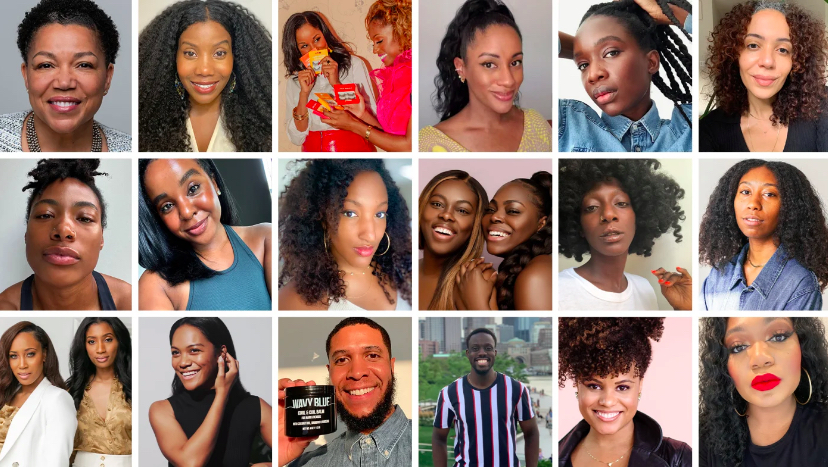
Are Beauty Companies’ Grants And Mentorship Efforts Delivering On Promises To Boost Black-Owned Brands?
The killing of George Floyd on May 25 and subsequent Black Lives Matter protests instigated a racial reckoning in the United States and elsewhere in the world that led to calls for police reform and increased diversity in the halls of private and public power. In the beauty industry, a lack of representation of and opportunities for Black people came under scrutiny to an extent it hadn’t before, and brands and retailers such as Glossier, Credo, Tower 28, The Detox Market, Shea Moisture and KNC Beauty sought to start to tackle it through mentorship and grant programs.
Nearly half a year after those programs were unveiled, Beauty Independent checked in with Black beauty entrepreneurs that have taken part in them to get a sense if they’re realizing the advancement they promised. The entrepreneurs largely give the programs positive early verdicts, but concerns persist that they’re superficial exercises rather than catalysts for permanent improvements and the capital commitments required to lift up Black-owned beauty brands remain scant.
The Most obtained $30,000 from Glossier’s grant program—and that’s not all. Dawn Myers, CEO and founder of the textured hair tool company, notes it’s been able to obtain five mentors and greater press exposure as a result of being a beneficiary. “They have the best of the best heading up their departments,” says Myers of Glossier. “We’ve experienced heightened visibility and increased gravitas as there is a lot of weight associated with the Glossier name that we can take into investor meetings.” She adds it’s incumbent on founders to maximize what they’re awarded. Myers says, “They need to understand the experience of their mentor, look at their LinkedIn and understand what their expertise is to really ask the right questions.”
The grant and mentorship programs have been met with criticism that they are performative rather than transformative. Orion Brown, CEO and founder of The Black Travel Box, points out the companies introducing them gain market kudos from presenting themselves in a good light. “Any venture is going to take its numbers and try to tell a story that resonates well with its customers, shareholders and stakeholders,” she says. “We have to monitor the leaps and bounds of these metrics as it can become a slippery slope.”
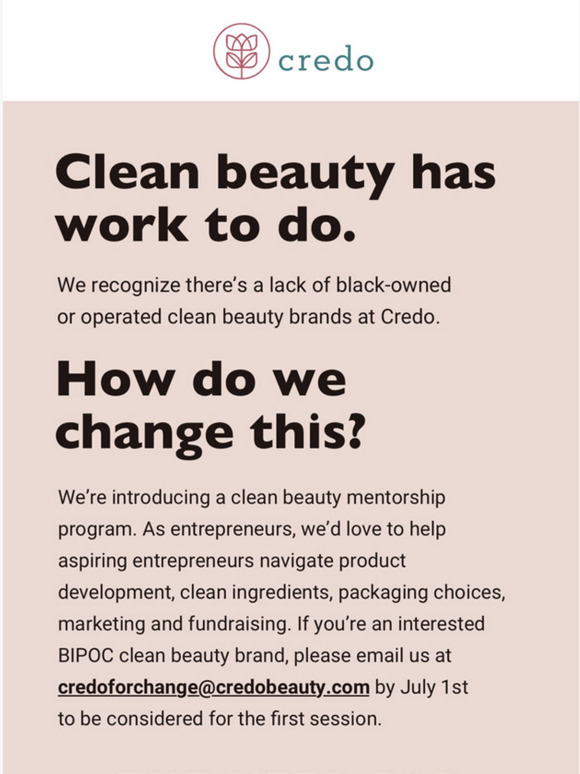
Brown continues that, if initiatives are created purely to adjust perception, but the brands and retailers behind the initiatives don’t truly believe in them, they will easily lose sight of them. (Glossier’s grant program was revealed prior to Black former Glossier retail employees detailing hostile interactions at the brand’s New York City flagship.) “Vanity metrics are only vain,” says Brown. “If the depth of commitment, involvement and intent isn’t really there, it’s purely putting on makeup and not changing anything internally.”
So far, initiatives have principally taken a blanket approach to aiding Black-owned businesses, but Brown suggests the monolithic view doesn’t consider the nuances of the businesses. “They need to be segmented based on skill set, experience and needs,” she says. “There can’t be individual programs for everyone, but create tiers that enable people to come onto the programs at different points in the same way that we have incubators and accelerators.”
Kimberlee Alexandria, founder of skincare brand Ode to Self, a finalist in Tower 28’s Clean Beauty Summer School program, which featured 10 classes taught by industry experts and a winner, Frigg, walking away with $10,000 from New Voices Foundation and $13,000 in services from HeadKount, agrees. She praises the information and access provided by Clean Beauty Summer School, but recommends future programs take into account brands’ divergent stages. She says, “Having that understanding may help in developing a curriculum that speaks to where the brands are at on their journey.”
“We need less mentoring and more access to money.”
Stevonne Ratliff, founder of skincare brand Beija Flor Naturals, commends Credo For Change, the clean beauty retailer’s mentorship program that accepted 13 founders for its first session running from Aug. 1 to Dec. 31, for being valuable to brands that have already gotten off the ground. “The program is structured to generously share Credo’s resources for growth as opposed to teaching us how to run a business,” she says. “They assume we have the basics as entrepreneurs and are looking to fill in the gaps to accelerate our business goals.”
For Kristen Speller, CCO of makeup brand Doubledown Cosmetics and participant in the Tower 28 and Credo programs, the funding difference between white- and Black-owned beauty brands must be dealt with to rectify beauty industry inequities. “In the clean beauty space, it feels as though Black founders are playing catch up when our companies have been here from the beginning,” she says. “We need less mentoring and more access to money.”
As a member of Credo For Change, Ratliff has found learning about the capabilities and wealth of larger brands to be enlightening. “It almost feels like a tease to be exposed to resources we couldn’t begin to afford,” she says. “In a perfect world, a move beyond education would include access to the marketing, branding, PR and finance teams that actually make a global brand.”
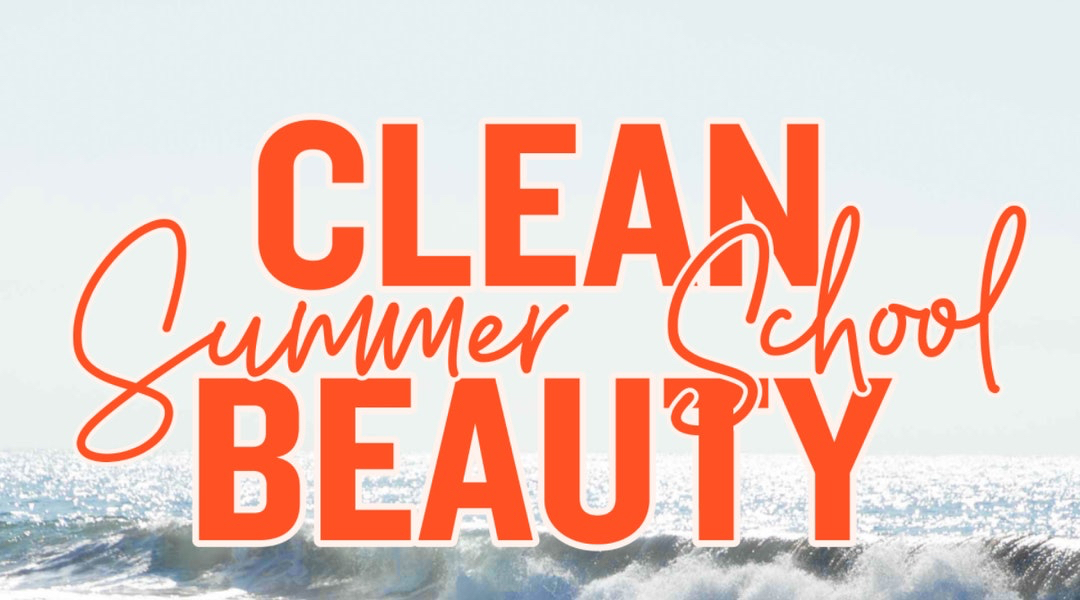
Black brand founders encounter distinct challenges perpetuated by implicit bias, and several lament the mentorship and grant programs haven’t confronted them. Speller and Alexandria advise experienced Black founders should be incorporated in the programs as teachers. “We want to be able to see the perspective of founders that actually look like us and have them teach us the tactics that fueled their journey,” says Speller, singling out UOMA Beauty founder Sharon Chuter and Adwoa founder Julian Addo as founders she’d be interested in receiving tutelage from. “There is a plethora of successful Black founders and seasoned experts who not only know the industry, but also know the unique experiences Black founders may go through. Brands can’t just create a program for a certain demographic, but then fail to address the unique issues for them.”
Ratliff isn’t sure short mentorship programs will be sufficient to overcome the obstacles bootstrapped Black-owned beauty brands face. She argues longer programs could be more consequential. “In a perfect world, we would get six months to a year’s support from their top accountants or branding experts at a discounted rate, for example,” says Ratliff. Jamika Martin, founder of Rosen Skincare, says, “We need to be connected with the movers and decision makers rather than just people who are talking us through their thoughts and ideas.”
Black beauty entrepreneurs welcome the assistance the programs offer and want it to extend beyond them. Myers desires to forge lasting relationships with people she met through Glossier’s grant initiative. “I want to be able to drop names in meetings either as formal or informal advisors because it helps when walking into investor or partner meetings saying I’ve got a senior exec at Glossier who is informing our process on something,” she explains. Already, an investor informed her he backed The Most because it’s a Glossier grantee. Myers says, “We’re already seeing some very substantial gains and, hopefully, there will be many more to come.”
Feature image credit: Glossier
KEY TAKEAWAYS
- Following the killing of George Floyd and Black Lives Matter protests demanding police reform, beauty brands and retailers such as Glossier, Credo, The Detox Market, Shea Moisture and Tower 28 embarked on grant and mentorship programs designed to support Black-owned brands.
- The participants in the programs largely give them positive reviews for providing valuable business information, helping them gain press exposure and facilitating access to beauty industry experts.
- The grant and mentorship programs have been met with criticism that they are performative rather than transformative.
- One issue with the programs participants point out is they tend to treat the brands involved in them as the same when they're not. There are brands at varying stages with divergent strategies and distribution.
- Black beauty brand founders encounter distinct challenges perpetuated by implicit bias, and several lament the mentorship and grant programs haven’t confronted them. They suggest the programs should tap the knowledge of experienced Black beauty brand founders more.
- Stevonne Ratliff, founder of skincare brand Beija Flor Naturals, suggests the mentorship programs be longer than a few months. A year-long program, for instance, could be quite consequential.
- Many Black beauty entrepreneurs assert capital is far more important than mentorship.
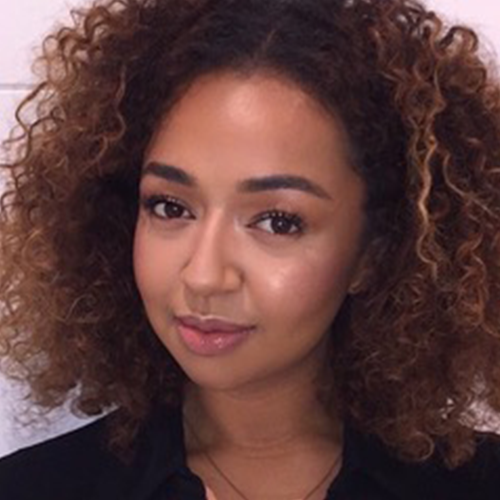


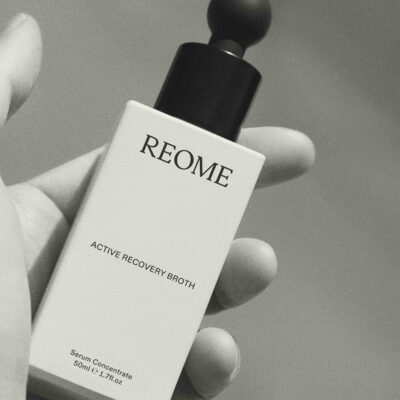
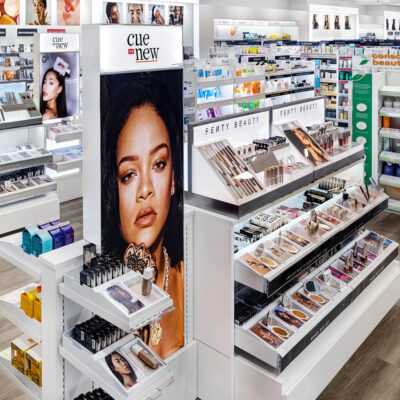
Leave a Reply
You must be logged in to post a comment.